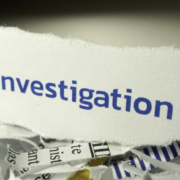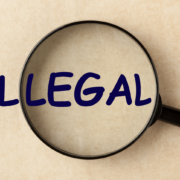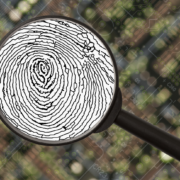Investigations On Display During Johnny Depp Defamation Case
In Johnny Depp’s defamation trial against his ex-wife Amber Heard, we’ve seen twists, turns, suspense and drama. We’ve also seen how investigations can be used to raise or lower the stakes during the course of a trial.
Just to catch everyone up, In 2012, Depp and Heard started dating. In 2014 they were engaged, and in 2015 were married. But by 2016, Heard filed for divorce stating irreconcilable differences. Soon after, Heard filed an order of protection saying Depp emotionally, verbally and physically abused her. Heard wrote an op-ed for “The Washington Post” speaking out against violence against women and the price they pay for speaking up against men. Depp claims these allegations led to Depp being dropped by Disney from the “Pirates of the Caribbean” franchise and axed from Warner Brothers’ “Fantastic Beasts” franchise.
So Depp sued his ex-wife Amber Heard for libel after she wrote an op-ed piece in The Washington Post in 2018 referring to herself as a “public figure representing domestic abuse.”
A recent article on a police website talks about investigations in this case. They say there are four sides to any investigation — “We have always heard that there are always two sides to an investigation. One side comes from the victim, and the other side comes from the suspect. What we often forget is that there are two more sides to every police investigation: the criminal side and the civil side.”
This source goes on to say, “But what happens if there is not enough evidence to bring criminal charges against the perpetrator? Or what happens if the case goes to trial but gets dismissed? The victim’s family has the right to sue civilly in court for any damages caused by the wrongful death. The state takes no action in this process.”
Numerous investigative techniques have been used for this most recent Depp/Heard defamation trial, but documenting the non-criminal acts or allegations of a crime has been evident for everyone to see.
Audio recordings, videos, text messages, and email exchanges have been shared as evidence in court over the last four weeks. In one audio clip, Heard admits to hitting Depp, calls him a “baby,” and says no one would believe he’s a victim. In a video, Depp is seen slamming kitchen cabinets and appears to be behaving erratically. Photographs seemed to show both actors with bruising and injuries allegedly inflicted on each other. It’s been quite a circus with full media coverage every step of the way.
In 2016, the LAPD responded to Depp and Heard’s penthouse only to find out that no crime occurred. They told the press that officers did not write a report because they did not see any damage to property and did not see any injuries on Heard. It is common practice in law enforcement to not write a police report when an officer does not see any damage or injuries, or when no allegations of injuries were made.
What is important to note is that the attorneys on both sides emphasized police documentation of non-criminal acts. “Just because an officer does not write a police report, doesn’t mean the officer can simply just walk away.” reports police1.com. The police site post also notes that “The officer should always include at least a few notes just in case that information is needed later.”
That source also indicates three ways agencies can document non-criminal matters:
- Use computer-aided dispatch (CAD) comments: Every agency has a way of clearing calls by attaching the officer’s written comments to CAD details. These comments are connected to the incident number, which can be retrieved later.
- Field Interview Report: If you want to document a little more than just CAD comments, your agency will likely have a system where you can document details using a “mini-report,” often called and field interview report. These are short 1-2 paragraph statements of what the officer did or saw and who the officer spoke with.
- Traditional police report: Some officers think they cannot write a police report if their criminal investigation turns non-criminal. This is not the case. Non-criminal reports are often called informational (info) reports. Info reports can turn into criminal reports later if detectives find all the elements of a crime. They can also be used to support criminal investigations, city engineers, planning departments and training units. More importantly, info reports are used to document what the officers did and why they were there in the first place.
No one knows exactly how the Depp/Heard case will be resolved, but one thing is very clear. The difference in this or any case comes down to reliable intelligence. As we often see, investigations can lead to to big victories in the courtroom. And we know that success or failure in the courtroom or during the settlement process depends on having the very best, most detailed information about a case. That’s why great attorneys and law firms across the country work with the worldwide team of Santoni Investigations who will make sure you know everything to maximize the settlement process or win your case in court!
Know Even More: READ THE ARTICLE






